Research Area
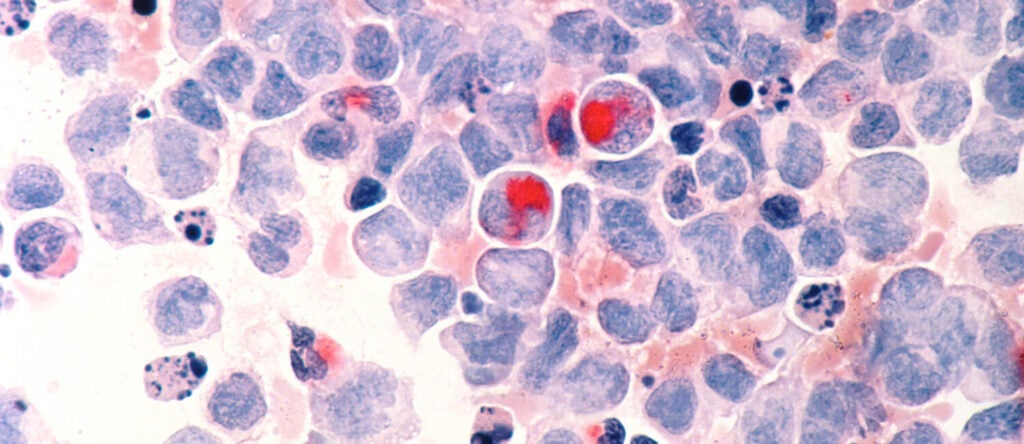
Changing the identity of cancer cells to eliminate them (link is external)
A team led by the School of Veterinary Medicine’s M. Andrés Blanco has uncovered a new target for treating certain blood cancers that works by removing an obstacle to their…
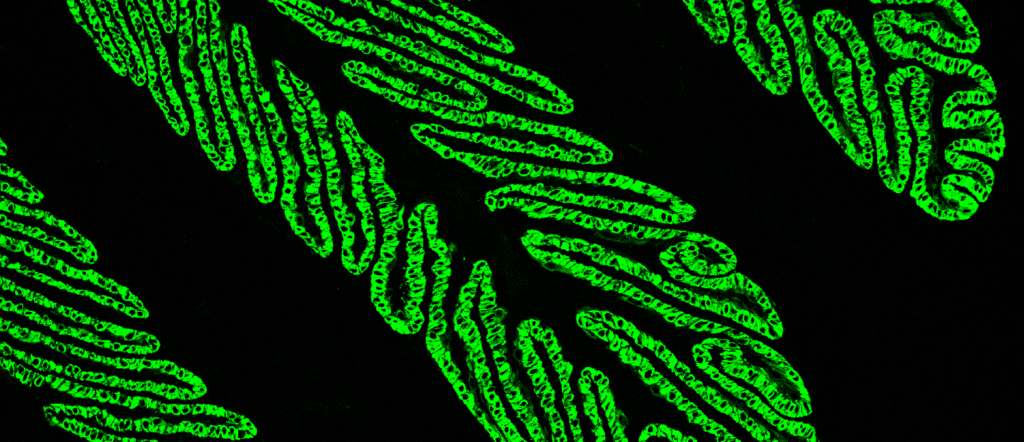
Breakthrough laminitis research shows promise for the future (link is external)
Horse owners usually dread hearing the diagnosis of “Laminitis.” The disease plagues horses of many backgrounds, ages and disciplines. Using genetics, UF/IFAS and University of Pennsylvania scientists have made a breakthrough in the disease thanks to funding from…

New Study to Investigate Impact of Pets on Recovery of the Gut Microbiome Following Antibiotic Regimen in Older Adults (link is external)
The Human Animal Bond Research Institute announces it has awarded a new research grant to Penn Vet to investigate whether pets are a source of microbiota that can help restore…
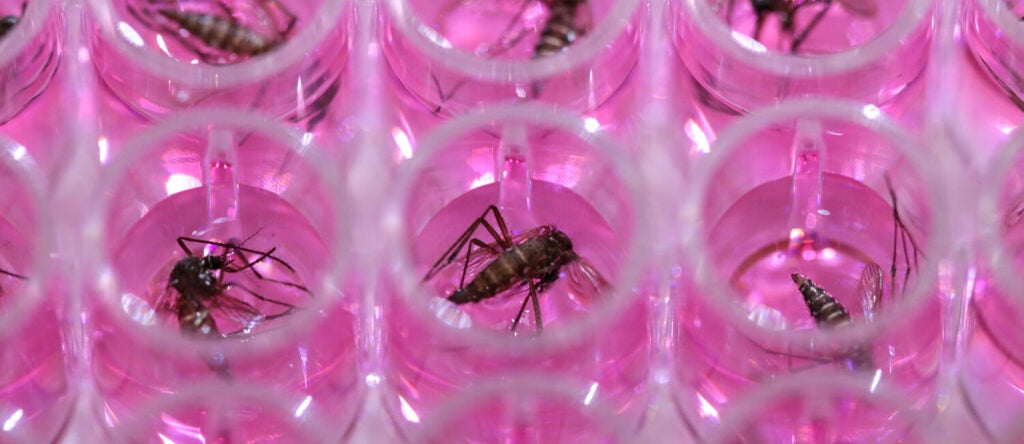
Stopping Disease Transmission at the Source
Dr. Michael Povelones considers how the chain of disease transmission could be halted before a pathogen ever leaves the mosquito vector.

A Hub for Zoonotic Disease Research (link is external)
Penn Vet’s unique new Institute for Infectious Zoonotic Diseases

Penn Vet Establishes Institute for Infectious and Zoonotic Diseases
Signaling the world’s vulnerability to disease, Penn Vet is launching the Institute for Infectious and Zoonotic Diseases to confront emerging and re-emerging zoonotic and vector-borne diseases, with a goal of…
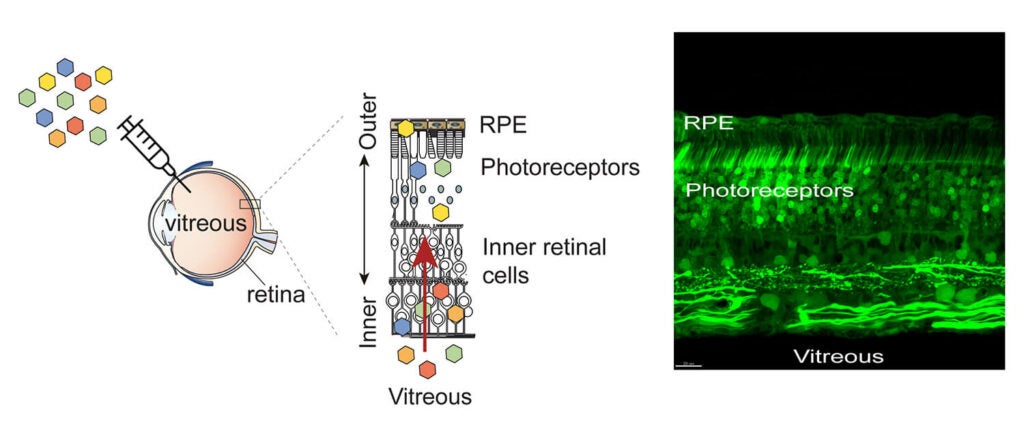
Novel gene therapy platform speeds search for ways to cure blindness (link is external)
A newly developed single-cell RNA sequencing technique enables researchers to quickly identify an optimal vector for delivering therapeutic genetic material to treat vision disorders, and perhaps other genetic conditions.

Forging healthy bonds with canine companions (link is external)
Penn Vet postdoc Lauren Powell’s research illuminates how the personalities of both dogs and their owners influence the pairs’ ability to overcome behavioral challenges.

Penn Vet Names Dr. Mark Oyama Interim Chair of Clinical Sciences and Advanced Medicine
Mark Oyama, DVM, MSCE, DACVIM, has been named Interim Chair of the Department of Clinical Sciences and Advanced Medicine (CSAM) at the University of Pennsylvania’s School of Veterinary Medicine (Penn…
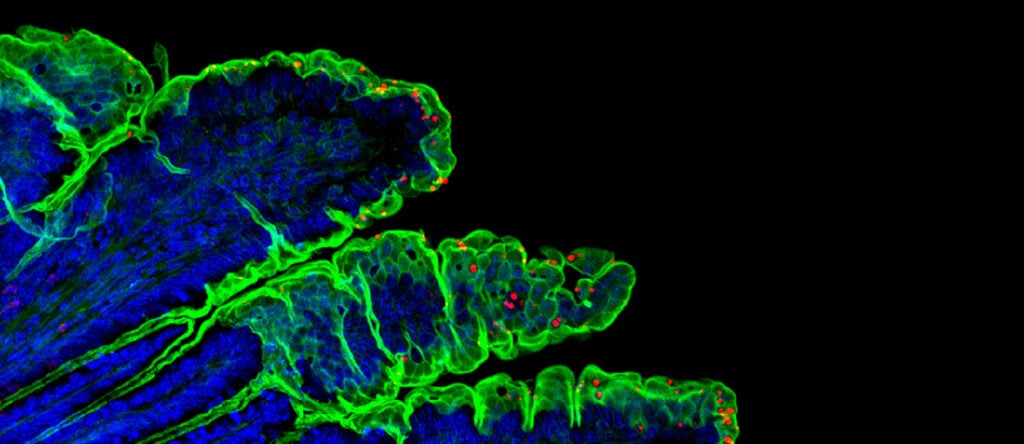
Tracking the earliest steps in parasite infection (link is external)
The parasite Cryptosporidium, a leading global cause of diarrheal diseases in children, injects host cells with a cocktail of proteins. Using powerful video microscopy, Penn Vet researchers tracked the process…
Sort By
- Research Laboratories (1)
- ASMG Laboratory - Microbial Genomics (2)
- Lengner Laboratory (3)
- New Bolton Center PADLS (3)
- Anguera Laboratory (4)
- Wang Laboratory (5)
- Puré Laboratory (1)
- Ortved Orthopedic Regenerative Medicine Laboratory (4)
- Wolfe Laboratory (1)
- Lennon Mucosal Immunology Laboratory (1)
- Dou Laboratory (3)
- Equine Pharmacology Research Laboratory (5)
- Hunter Laboratory (3)
- Brinster Laboratory of Reproductive Physiology (1)
- Sunyer Laboratory (3)
- Harty Laboratory (3)
- Mason Immunotherapy Research Laboratory (3)
- Scott Laboratory (1)
- Vaughan Laboratory (1)
- Sasaki Laboratory (1)
- Modzelewski Laboratory (1)
- Research Institutes (17)
- Research Programs (3)
- Research Centers (1)
